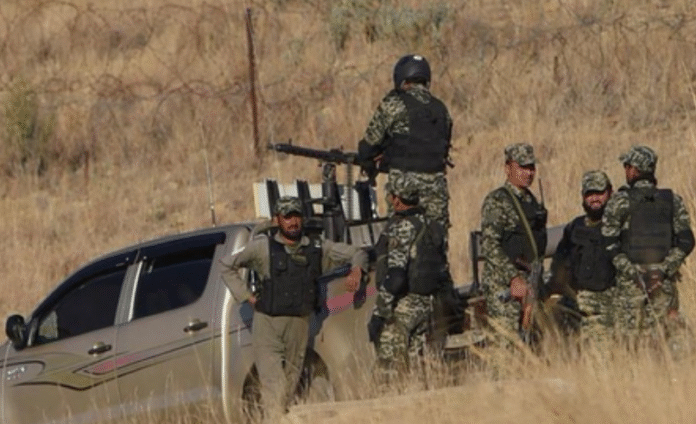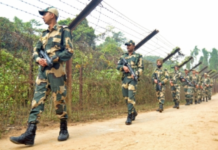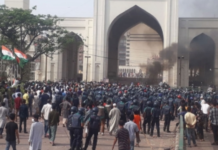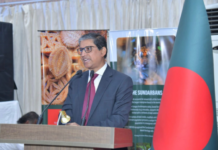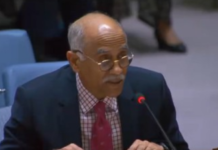Kabul– Heavy fighting between Pakistani forces and Afghanistan’s Taliban militia along the volatile Durand Line has left dozens dead and hundreds wounded, according to reports on Wednesday.
Witnesses and local sources reported intense cross-border exchanges involving artillery and tanks, with Pakistan reportedly conducting another airstrike in Afghanistan’s Kandahar province. Pakistani authorities said their forces repelled large-scale Taliban attacks near Spin Boldak and Balochistan, claiming that nearly 20 Taliban fighters were killed. Both sides, however, offered conflicting casualty figures as the skirmishes resumed after a short pause.
The Taliban accused Pakistan of launching an offensive on Wednesday that killed at least a dozen civilians. “In retaliatory operations, multiple Pakistani aggressor soldiers were killed, their posts and centers were captured, weapons and tanks fell into the hands of Afghan forces, and most of their military installations were destroyed,” Taliban spokesperson Zabihullah Mujahid posted on X.
Taliban-affiliated social media accounts circulated short videos claiming to show captured Pakistani soldiers and destroyed military positions. The group also claimed to have torn down parts of the border fence near Spin Boldak in Kandahar province, across from Pakistan’s Balochistan region.
The United Nations Assistance Mission in Afghanistan (UNAMA) confirmed reports of civilian casualties and urged restraint. “We are still working to determine the full scale of civilian harm,” UNAMA posted on X, calling on “all parties for an immediate end to hostilities to protect civilians and prevent further loss of life.” The mission said it had recorded numerous Afghan civilian deaths and injuries resulting from the recent cross-border clashes.
In Islamabad, Pakistani officials briefed foreign envoys to outline what they described as “legitimate security concerns” and the need to safeguard the country’s territorial integrity. Afghan officials, meanwhile, accused Pakistan of excessive use of force and claimed that several civilians were among the dead.
Qatar and Saudi Arabia have appealed for de-escalation and the reopening of dialogue, while China urged both nations to ensure the safety of its personnel working on infrastructure projects in Afghanistan. Rising tensions between Kabul and Islamabad have sparked multiple clashes along the disputed border in recent months.
Pakistan’s latest airstrike, reportedly targeting a Tehreek-e-Taliban Pakistan (TTP) leader, coincided with Afghan Foreign Minister Amir Khan Muttaqi’s visit to India. Following talks with Indian Foreign Minister S. Jaishankar, a joint statement reaffirmed that Jammu and Kashmir remains an integral part of India — a position that drew sharp criticism from Islamabad.
In the wake of the renewed border violence, Kabul cancelled a scheduled visit by a Pakistani delegation. Taliban fighters launched an assault on Pakistani outposts on October 11, claiming it was in retaliation for Islamabad’s recent bombing raids on Afghan cities, including Kabul.
Humanitarian agencies warned that the latest clashes threaten already fragile civilian livelihoods and cross-border trade, with key checkpoints reportedly shut down. Pakistan has accused the Taliban government of harboring TTP fighters who have intensified attacks inside Pakistan, prompting Islamabad to expel thousands of Afghan refugees.
The tensions mark a violent continuation of a decades-long conflict. The Mujahideen, who were armed and trained by Pakistan’s Inter-Services Intelligence (ISI) with reported support from the U.S. Central Intelligence Agency (CIA) during the 1980s Soviet occupation, gave rise to both the Taliban and the TTP in subsequent decades. (Source: IANS)


